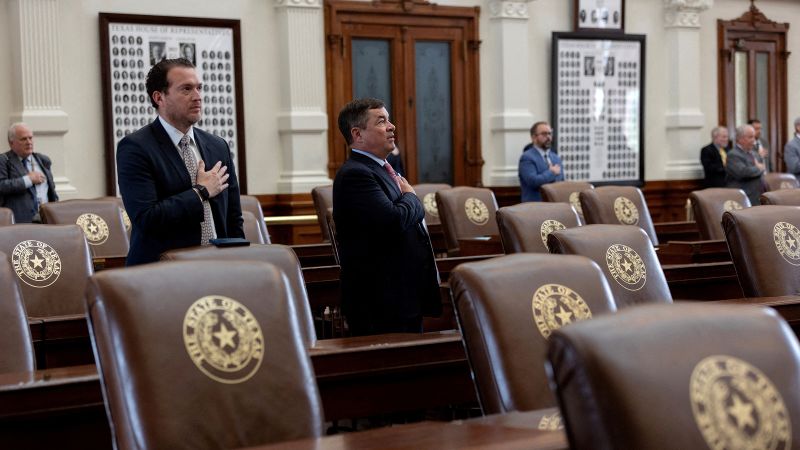In Texas, Governor Greg Abbott is planning to convene a second special legislative session, should the House of Representatives fail to meet the required quorum by the end of this week. This impending session is particularly critical, as it centers on contentious issues of redistricting, aimed at reforming congressional boundaries that could potentially grant the Republican Party an advantage, yielding as many as five additional seats in the U.S. Congress. The backdrop is set against partisan tensions, particularly as a faction of Democratic state representatives has actively worked to impede the GOP’s agenda concerning the proposed maps.
The current special session, which addresses not only redistricting but also flood relief among other pressing matters, is on track to conclude by August 19. Texas House Speaker Dustin Burrows has arranged a firm deadline for the return of the absent Democratic lawmakers to fulfill quorum requirements. Without their attendance, the legislative process faces significant delays, compelling the House and Senate to “sine die” the session, indicating the formal end of legislative activity. Should this happen, Governor Abbott has announced plans to initiate a new special session promptly, essentially prolonging discussions around the contentious redistricting process.
Governor Abbott’s firm stance is evident in his recent statements. He indicated that Special Session #2 would carry the same agenda as the current session, with the possibility of adding further critical issues relevant to the citizens of Texas. He underscored his commitment to continuing to call special sessions until the legislative agenda he advocates, often termed “Texas first,” is fully realized. This stance is particularly directed at the Democratic representatives who have chosen to avoid participation, which Abbott perceives as a dereliction of their duty to their constituents.
The urgency of this scenario was amplified when the Texas House of Representatives reconvened on a Tuesday morning, failing to meet quorum yet again. With only 95 of the necessary members present, this shortfall highlighted the divided state of Texas politics, reflecting the ongoing battle between the major parties. Speaker Burrows noted the implications of the representatives’ absence, urging them to reconsider their stances in light of the suffering endured by communities across Texas due to multiple crises.
Looking ahead, the Texas House is scheduled to reconvene at 10 a.m. CT on Friday in hopes of achieving quorum once more. To facilitate this, Speaker Burrows has requested all lawmakers be within a six-hour radius of the state capitol during the crucial days leading up to the meeting. This measure underscores the intensity of the situation, as both parties scramble to assert their presence and influence over the legislative outcomes.
In conclusion, the events unfolding in Texas encapsulate a microcosm of the broader national political tensions, particularly surrounding issues of redistricting and legislative participation. The Governor’s determined approach, coupled with the obstinate stance of some Democratic lawmakers, sets the stage for further political confrontations. As both sides prepare for what is shaping up to be a prolonged struggle over the future of congressional representation in Texas, the outcome remains uncertain, with the potential for significant ramifications both within the state and at the national level. The evolving situation in Texas may serve as a pivotal point for the ongoing discourse around electoral representation and party influence across the United States.











